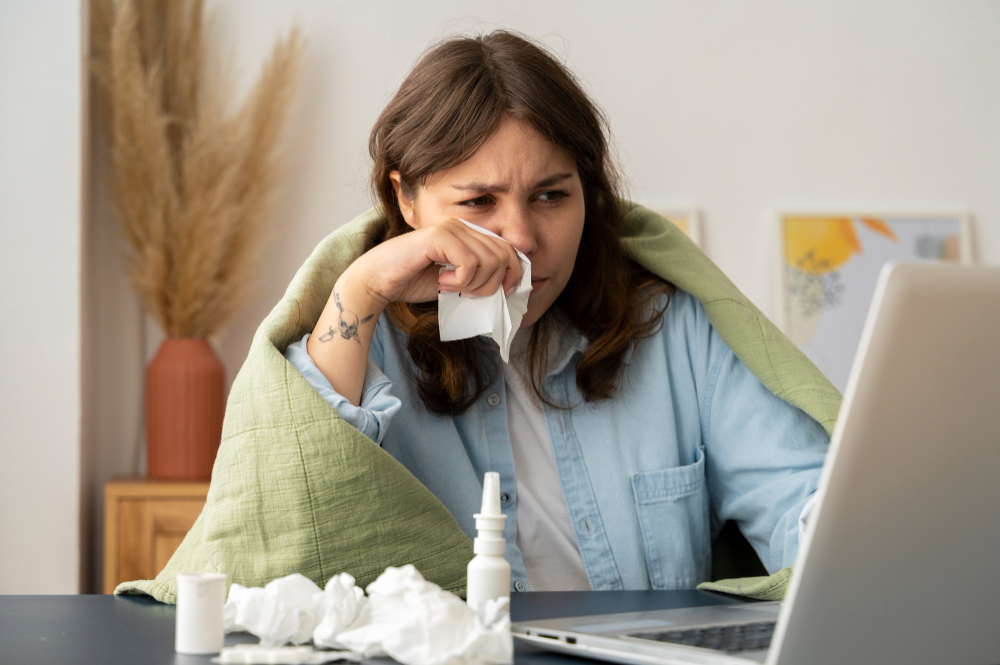Allergy fatigue is a common phenomenon experienced by individuals with allergies, characterized by feelings of tiredness, lethargy, and low energy levels. Allergies trigger the body’s immune response, leading to inflammation and the release of histamines, which can cause fatigue as the body expends energy to fight off perceived threats. Symptoms of allergy fatigue may include excessive tiredness, difficulty concentrating, irritability, and muscle weakness, impacting overall quality of life and productivity. Understanding the underlying causes and symptoms of allergy fatigue is the first step towards finding effective solutions.
Pinpointing Culprits
To address allergy fatigue, it’s essential to identify and minimize exposure to allergic triggers that may be contributing to symptoms. Common allergens include pollen, dust mites, pet dander, mold, and certain foods. Keep track of your symptoms and potential triggers to pinpoint specific allergens that may be causing fatigue. Consider undergoing allergy testing to identify specific allergens and develop a personalized management plan. By minimizing exposure to allergens through preventive measures such as air purifiers, dust mite covers, and allergen-proof bedding, you can reduce the burden on your immune system and alleviate allergy-related fatigue.
Nourishing the Body
Diet plays a crucial role in managing allergy fatigue and supporting overall health and well-being. Certain foods and beverages may exacerbate allergy symptoms and contribute to fatigue, while others can help boost energy levels and reduce inflammation. Focus on incorporating nutrient-rich foods such as fruits, vegetables, lean proteins, whole grains, and healthy fats into your diet to provide essential vitamins, minerals, and antioxidants. Stay hydrated by drinking plenty of water throughout the day, as dehydration can exacerbate fatigue and worsen allergy symptoms. Limit consumption of inflammatory foods such as processed foods, refined sugars, and artificial additives, which can trigger allergic reactions and exacerbate fatigue.
Finding Balance
Stress and anxiety can exacerbate allergy symptoms and contribute to fatigue by weakening the immune system and disrupting sleep patterns. Practice stress management techniques such as mindfulness meditation, deep breathing exercises, yoga, and progressive muscle relaxation to reduce stress and promote relaxation. Prioritize self-care activities that help you unwind and recharge, such as spending time in nature, engaging in hobbies, or connecting with loved ones. Establish a consistent sleep routine and create a relaxing bedtime environment to promote restful sleep and alleviate fatigue.
Harnessing Nature’s Healing Power
Natural remedies can complement conventional allergy treatments and help alleviate allergy-related fatigue. Herbal supplements such as quercetin, bromelain, stinging nettle, and butterbur may help reduce inflammation, stabilize mast cells, and alleviate allergy symptoms. Consider incorporating these supplements into your daily routine under the guidance of a healthcare professional. Essential oils such as lavender, peppermint, and eucalyptus can provide relief from congestion, sinus pressure, and respiratory symptoms associated with allergies. Use them in diffusers, steam inhalations, or diluted in carrier oils for topical application.
Consulting with Healthcare Providers
If allergy fatigue persists despite self-care measures and lifestyle modifications, it’s essential to seek guidance from healthcare providers for comprehensive evaluation and management. Your healthcare provider may recommend allergy testing to identify specific allergens and develop a tailored treatment plan, which may include prescription medications, allergy shots (immunotherapy), or other interventions to manage symptoms effectively. Additionally, healthcare providers can address underlying health conditions that may be contributing to fatigue, such as sleep disorders, thyroid imbalances, or nutritional deficiencies.
Reclaiming Vitality and Well-Being
In conclusion, overcoming allergy fatigue requires a holistic approach that addresses underlying allergies, supports overall health and well-being, and promotes balance and vitality. By identifying allergic triggers, implementing dietary changes, managing stress and anxiety, exploring natural remedies, and seeking professional guidance, individuals can alleviate allergy-related fatigue and regain energy and vitality. Embrace self-care practices, prioritize rest and relaxation, and listen to your body’s needs to reclaim your vitality and well-being. With proactive management and support, you can overcome allergy fatigue and enjoy a healthier, more vibrant life.
